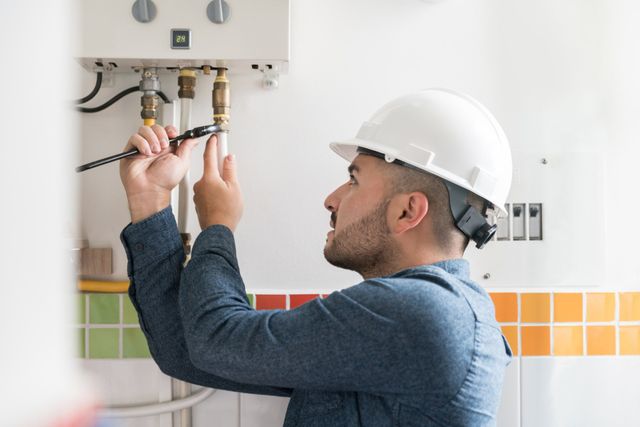Managing the Routine Hot Water Heater Crisis Events
Managing the Routine Hot Water Heater Crisis Events
Blog Article
This great article listed below relating to Common Hot Water Heater Problems is rather motivating. Don't skip it.

A water heater is just one of the most vital fundamental devices that can be discovered in a home. With water heaters, you do not need to undergo the stress of home heating water by hand every time there is a requirement to wash, do the laundry, or the meals. Nonetheless, there is always a possibility that your hot water heater would certainly act up similar to a lot of mechanical devices.
It is essential to keep in mind any kind of little malfunction and also tackle it rapidly before things get out of hand. The majority of times, your hot water heater starts to malfunction when there is a build-up of sediments as a result of constant use. As a safety measure, regular flushing of your water heater is recommended to prevent debris build-up as well as stop useful failing.
Typical water heater emergencies and how to manage them
Insufficient hot water
It may be that the water heater can't sustain the hot water demand for your house. You might upgrade your water heating unit to one with a larger capacity.
Varying water temperature.
Your water heater can start generating water of different temperature levels usually ice cool or scalding warm. There might be a requirement to replace either the home heating or the thermostat system of your water heating system.
Dripping hot water heater container.
In this circumstance, you need to turn off your water heating system, allow it to cool down, as well as meticulously look for the source of the issue. At times, all you require to do is to tighten up a few screws or pipe connections in cases of minor leakages. If this does not function and the leak continues, you may require to use the solutions of a technician for an appropriate replacement.
Stained or smelly water
When this happens, you require to recognize if the concern is from the container or the water source. If there is no funny smell when you run cold water, then you are specific that it is your water heating unit that is damaged. The stinky water can be caused by rust or the buildup of bacteria or sediments in the water heating system tank.
Conclusion
Some home owners overlook little caution and minor faults in their water heater system. This only results in additional damage as well as a possible full break down of your device. You need to manage your hot water heater faults as soon as they come near stay clear of even more costs and unnecessary emergency problems.
With water heating units, you don't require to go with the tension of heating water by hand every time there is a need to take a bathroom, do the laundry, or the meals. It might be that the water heating system can not support the warm water need for your apartment. Your water heating unit might start generating water of different temperature levels normally ice scalding or cool hot. If there is no amusing odor when you run cool water, then you are specific that it is your water heating system that is defective. The odiferous water can be caused by rust or the build-up of microorganisms or sediments in the water heater storage tank.
Common Water Heater Issues and What You Should Do
What Type of Water Heater Do You Have?
Before we begin it’s first important that you identify the type of water heater you have on your property. There are two main types of water heaters out there: conventional and high efficiency.
Both of these types of products typically use either gas or electricity to heat power. There are also solar water heaters that use a thermal collector on the roof or yard to heat the water.
While these models are not as common, they can cut heating costs in half. In this article, we will focus on conventional and high efficiency.
How Do My Electric and Gas Water Heater Work?
Though they look similar, electric and gas water heaters work very differently. It’s important to know their basic function because often problems can be specific to the heating source.
In the electric model, a thermostat on the side of the machine detects the temperature of the water in the tank. When the temperature needs to rise electricity flows to a heating element suspended in the water.
Gas models also use a thermostat device — typically with a mercury sensor at the tip and an additional sensor called a thermocouple. The thermocouple detects whether the pilot light is on and controls the flow of gas.
When the thermostat drops below the appropriate level gas is released which becomes ignited by the pilot light. The flame heats the bottom of the water tank which causes hot water to rise and cold water to drop.
This natural circulation continues until the water reaches the desired temperature. Then, the thermostat triggers the gas control valve to shut off the flow of gas.
What Are the Most Common Issues and How Do You Fix Them?
https://happyhiller.com/blog/common-water-heater-issues-and-what-you-should-do/

Do you appreciate reading up on Common Hot Water Heater Problems? Try leaving a comment directly below. We'd be interested to know your feelings about this posting. We hope that you come back again later on. Do you know another individual who is in the market for the niche? Why not promote it. We thank you for reading our article about Common Hot Water Heater Problems.
Quality and quick, dial! Report this page